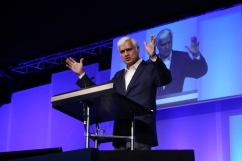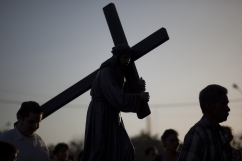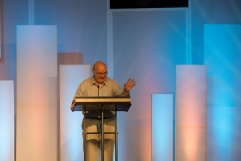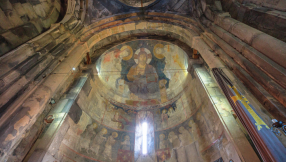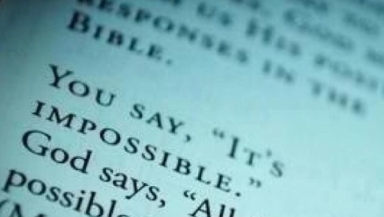
The four Gospels of the Bible provide the foundation of Christian belief. The books of Matthew, Mark, Luke and John record the life of Jesus while on Earth: the famous nativity and crucifixion stories, and also what Jesus taught and how he behaved.
Orthodox Christians treat the Gospels as historical books: they are recording what actually happened – miracles, healings, resurrection and all. But some centuries ago this belief started to be questioned. Now, it's commonly believed outside (and sometimes inside) the church, that modern investigation has shown the Gospels to be unreliable, or fundamentally altered, or made up many decades after the events.
More recently, some Bible scholars have become sceptical of the sceptics: and become more robust in defending the Gospels as trustworthy and reliable historical records of what Jesus said and did. Here's a very short introduction to a few of these ideas.
- If the Gospel authors wanted to alter the story to suit their own ends, they could have done a better job of it
The Gospels contain numerous embarrassing details about the disciples and even Jesus, which would surely have been taken out if the authors were not trying to produce faithful, historical accounts of what actually happened. For example, they record the doubts of the disciples after the crucifixion and their poor support for Jesus in Gethsemane, their frequent lapses in understanding, and Jesus' mercy towards an adulterous woman, which would have been scandalous at the time. - Many attacks on the Gospels just assume that the stories can't be true
A lot of the arguments against the authenticity of the Gospels are driven by a bias against the possibility of the supernatural. They include accounts of miracles and healing; but naturalists (people who only accept the material world as real), argue that miracles are impossible and must have been invented.
For example, in the Gospels, Jesus predicts the fall of Jerusalem; it's argued by some that it is impossible for Jesus to have known about the event beforehand, and so the Gospels must be written after AD70 when it happened, and made to look as if Jesus had predicted it. But if this was so, why wouldn't they have included more details of the fall of Jerusalem into the story?
But more generally, why assume that anything supernatural is impossible and must be invented? Isn't this performing analysis after drawing the conclusion? If there is a God and he came to Earth, why wouldn't he be able to perform miracles? - Though a point of scholarly debate, there's a good argument that the Gospels were written less than 30 years after Jesus' crucifixion
In fact, the lack of information in the Gospels (and the rest of the New Testament) about the fall of Jerusalem can support an argument that the Gospels must have been written before AD70. One specific proposal is that the Gospel of Luke (and Acts, which were written together) was written before AD65. This is because Acts, which clearly intends to be historical, does not mention the fall of Jerusalem in AD70, nor the brutal persecutions of Christians by the Emperor Nero from AD65.
So, if Luke was written in the 30 years after Jesus' crucifixion, there would be plenty of disciples around who knew Jesus well and had lived through the events recorded. If the Gospel accounts had been inaccurate, the disciples would have dismissed them as frauds at that time, and they wouldn't have become so widespread and popular within the early church. - The 'Gnostic gospels' did not compete with the biblical Gospels
I've heard the 'Dead Sea scrolls' being randomly cited as evidence the gospel documents were changed, or are not authentic. Straight away, it shows the person hasn't done their homework, as the Dead Sea Scrolls contained no New Testament/Christian documents. They've probably got confused with the Gnostic gospels, which are supposedly gospels but often have a different take on the life and words of Jesus to the books in the Bible.
I'd strongly recommend anyone in doubt reads the Gnostic gospels, after a careful study of the biblical gospels. It's like comparing chalk and cheese; fine wine and vinegar. On a subjective level, they are very different.
In addition, the Gnostic gospels are dated later than the biblical ones, and obviously the closer to the time Jesus was around, the more likely they are to be historically reliable. The Gnostic gospels were also not included in early Christian writings, whereas the Gospels in the Bible were. This suggests that the Gnostic gospels were not accepted by the early church as accurate, but the gospels now in the Bible were seen as authentic. - The earliest manuscripts we have of the Gospels support one another
We do not have the 'original' documents of the biblical Gospels, that were hand-written by the authors themselves. But we do have early copies of manuscripts that corroborate each other in all but the most nit-picking detail (most modern Bibles are open about the differences, and will tell you at the bottom of the page. They are nearly all so trifling as to hardly be mentioned, and don't affect important Christian doctrine).
You would as much expect the 'original' manuscript to survive, as you would the very first book from a factory line to survive nowadays - we don't preserve the first off a line because it's irrelevant, and in the same way they didn't in biblical times. Then, people didn't have printing presses, so they copied documents word for word to duplicate the work. This was done very carefully, as it was their only means of publication. The earliest fragments that still exist are from 120-160 AD. You could see these early fragments as the 'first edition' of the documents - careful duplications of the original.
Short lists such as this can never answer these questions thoroughly. For an accessible introduction to the reliability of the Bible, try Amy Orr-Ewing's Why trust the Bible? or Paul Barnett's Gospel Truth. Or, if you're an looking for something more scholarly, you can try Jesus under Fire eds Michael J Wilkins and JP Moreland, or Jesus and the Eyewitnesses by Richard Bauckham.
Heather Tomlinson is a journalist who has worked for various national newspapers and Christian publications. You can read more articles supporting the truth of the Christian faith on her blog.













